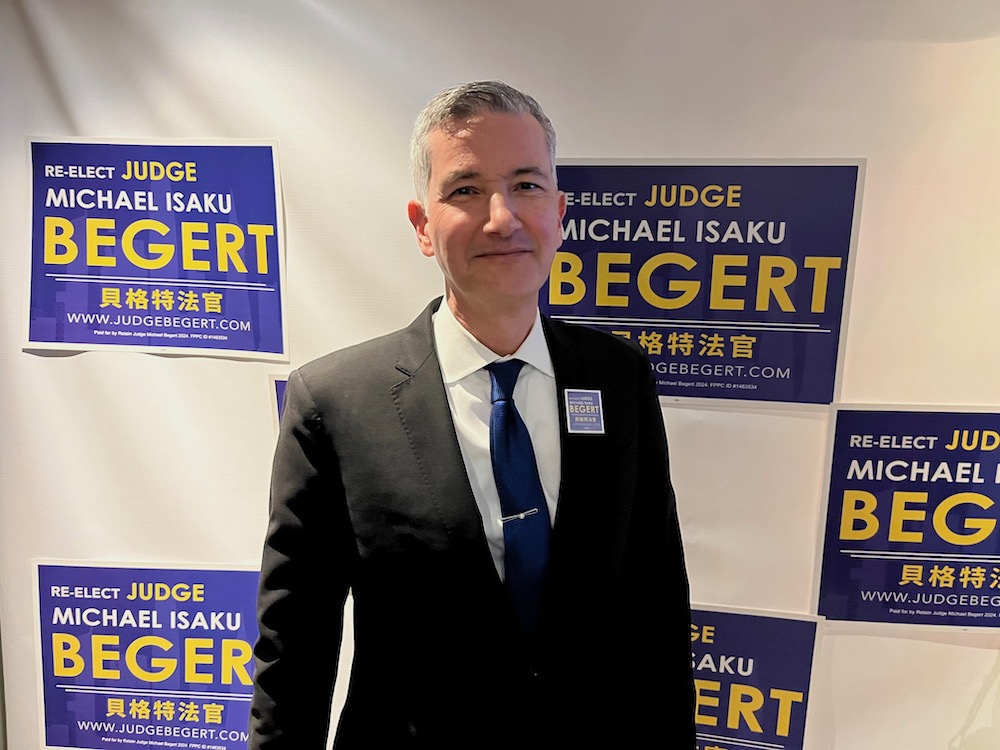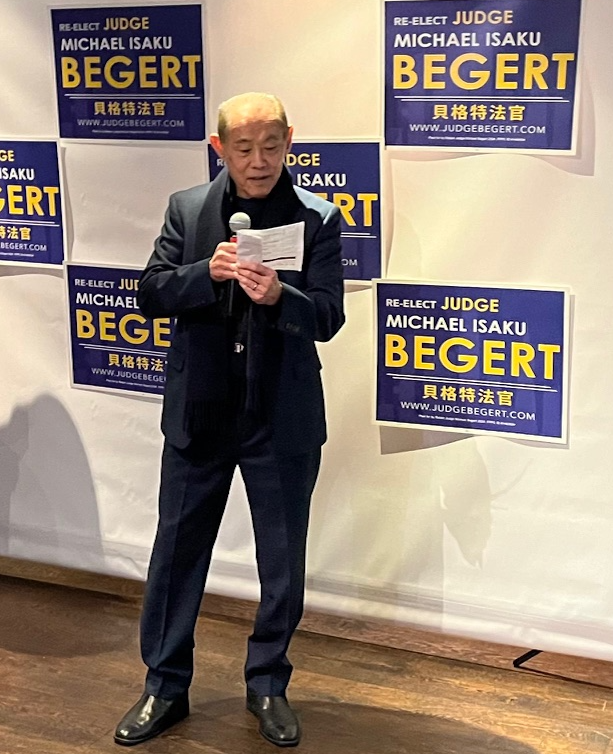Supporters of StopCrimeSF have already poured a stunning $151,000 into a campaign to oust incumbent Judge Michael Isaku Begert, including $100,000 from tech baron Chris Larsen, state records show.
That total, in donations to challenger Albert “Chip” Zecher, comes from just 19 big donors. Among them: Mark Robinson, an investment banker who works with Big Pharma and lives in Kentfield ($10,000) and Boston Properties ($10,000), which lists an address in San Francisco but is based in (no surprise) Boston.

Larsen, who is giving huge sums to other right-wing groups seeking to take over San Francisco politics, is registered to vote in this city but in some campaign-finance filings lists his address as Antioch.
Begert has reported $21,000 in donations of more than $1,000, mostly from lawyers and retired judges, and $25,000 from the California Judges Association.
A PAC supporting both incumbent judges facing challenges has raised $21,000, again mostly from local law firms.
“It’s more billionaires with their ill-gotten cryptocurrency gains trying to buy another election and politicize the courts and erode their independence,” Sup. Aaron Peskin, who is supporting Begert, told me. “Chris Larsen doesn’t do anything that isn’t ok with his friend Mayor Breed so I see this as a sign that Breed has a hand in undermining the independence of the judiciary.”
Begert is one of two sitting judges facing challenges from the right-wing anti-crime group, which has attacked them for following state laws on the pre-trial release of people charged with crimes. Because of the Canons of Judicial Ethics, the incumbents can’t comment on cases, so they can’t defend their records.
Jean Myungjin Roland, a deputy district attorney, is challenging Judge Patrick Thompson, but so far neither candidate has received anywhere near the kind of big money that’s gone into the Zecher race.
Zecher, who has worked since 2008 as in-house counsel to two tech firms, hasn’t spent much time in court in the past 15 years.

Because he has been affiliated with a group directly critical of Begert’s rulings in criminal cases, several legal observers I have spoken to said it was unlikely he would be assigned to handle criminal cases anyway. And Begert is no longer handling criminal cases.
So this challenge is all about politics, about intimidating future judges who have to decide who gets locked up and for how long.
At a kickoff event Wednesday, Begert, who grew up in a biracial family in a largely Japanese farming community in Washington State, spoke about his ties to the Asian Law Caucus, where he previously served as board chair.
“This is an attack on the values you have instilled in me,” he said. “Injustice anywhere is a threat to justice everywhere.”
He talked about the climate of fear that some politicians and organizers have created, and said: “At times like this, we need people who have courage.”
Dale Minami, who was a co-founder of ALC, said that Zecher “is not very well qualified, running against someone who is a remarkable jurist.”
He said there is “no real criticism” of Begert. “Lies are being told….People are trying to change the judiciary into a political situation.”
Now: I have never argued that judges should be immune from electoral challenges. It’s an elective office under the state Constitution, and anyone who wants to run has a right to run.
But the politics here are simple: The allies of the mayor can’t blame the district attorney for crime any more, and they don’t want to blame her, so they are going after the judges.
With unheard of money.




